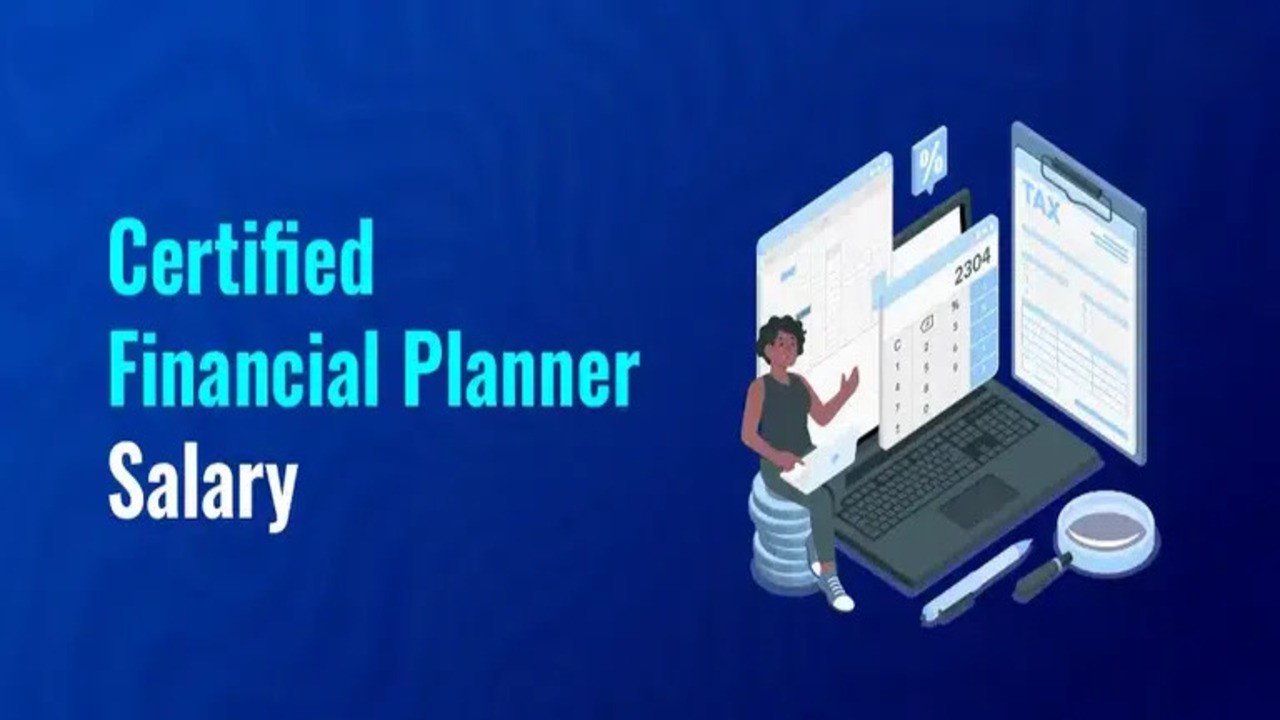Essential Financial Planning Tips for Stability in 2025.
Getting your money sorted can feel like a big task, right? It’s easy to put off, especially when life gets busy. But honestly, taking a little time to figure out your finances now can save you a lot of headaches later. Think of it like getting your car serviced – you do it to prevent bigger problems down the road. This guide breaks down financial planning into simple steps, so you can start building a more secure future without feeling overwhelmed. You don’t need to be a finance whiz to get started; just taking that first step makes a difference.
Thank you for reading this post, don't forget to subscribe!Key Takeaways
- Financial planning is about setting clear goals and making a plan to reach them.
- An emergency fund is your first defense against unexpected costs, aiming for 3-6 months of living expenses.
- Managing debt, especially high-interest debt, is key to freeing up money for savings and investments.
- Investing your money, even small amounts consistently, helps it grow over time thanks to compounding.
- Regularly reviewing and updating your financial plan is important as your life and goals change.
Understanding The Core of Financial Planning

Getting your Financial planning in order might sound like a big, scary task, but it really just boils down to a few key things. Think of it like planning a trip – you need to know where you’re starting, where you want to go, and how you’re going to get there. Without that map, you’re just wandering around hoping for the best, which usually doesn’t end well financially.
Defining Your Financial Goals
First off, what do you actually want your money to do for you? This isn’t just about “being rich.” It’s about figuring out what’s important. Do you dream of buying a house in five years? Want to travel the world for a year? Or maybe you just want to feel less stressed about bills each month. Writing these down makes them real. It’s like telling yourself, “Okay, this is what I’m aiming for.” Without clear goals, your money doesn’t have a purpose, and it’s easy to just spend it without thinking.
Creating A Realistic Budget
Once you know your goals, you need to see where your money is actually going. A budget isn’t about depriving yourself; it’s about being smart with your cash. You track your income and then list out all your expenses. It can be eye-opening to see how much those daily coffees or streaming subscriptions add up. The idea is to make sure your spending lines up with your goals. If you want to save for a down payment, you might need to cut back on eating out for a while. It’s about making conscious choices.
Here’s a simple way to look at your spending:
- Needs: Rent/mortgage, utilities, groceries, transportation, insurance.
- Wants: Dining out, entertainment, hobbies, new gadgets.
- Savings/Debt Repayment: Money set aside for goals or paying down loans.
Assessing Your Current Financial Situation
Before you can plan where you’re going, you have to know where you stand right now. This means taking a good, hard look at your assets (what you own, like savings accounts, cars, or property) and your liabilities (what you owe, like credit card debt or student loans). Your net worth is simply your assets minus your liabilities. Knowing this number gives you a starting point. It helps you understand your financial health and identify areas that need the most attention, like high-interest debt that’s costing you a lot of money each month.
Building Your Financial Safety Net

Life throws curveballs, right? One minute you’re cruising along, the next you’re dealing with a surprise medical bill or a car that decides it’s had enough. That’s where your financial safety net comes in. It’s not about being pessimistic; it’s about being prepared so you can handle those unexpected bumps without derailing everything you’ve worked for.
Establishing An Emergency Fund
Think of this as your personal financial shock absorber. An emergency fund is basically cash set aside only for true emergencies – like losing your job, a sudden illness, or a major home repair. Financial planning The general advice is to have enough saved to cover three to six months of your essential living expenses. So, if your bills add up to $3,000 a month, you’d want $9,000 to $18,000 in this fund. It’s best to keep this money in a separate savings account, maybe one that earns a little interest, but where you can still get to it easily. You don’t want it mixed in with your regular checking account, or you might be tempted to spend it on something less important.
Starting this fund can feel daunting, especially if money is tight. But remember, every little bit counts. Even saving $20 or $50 a week adds up over time. The goal is to build that cushion so you can sleep a little better at night.
Developing A Smart Debt Management Strategy
High-interest debt, like what you often find on credit cards, can be a real drain on your finances. It’s like trying to run uphill with a backpack full of rocks. Tackling it head-on is a big part of building that safety net. There are a couple of popular ways people go about this:
- Debt Snowball: You pay off your smallest debts first, regardless of the interest rate. Once a small debt is gone, you take the money you were paying on it and add it to the payment for the next smallest debt. This gives you quick wins and can be really motivating.
- Debt Avalanche: This method focuses on paying off the debts with the highest interest rates first. Mathematically, this saves you the most money over time because you’re cutting down on the interest charges faster.
Which one is better? It really depends on what keeps you going. Some people need those quick wins from the snowball, while others prefer the long-term savings of the avalanche. Whatever you choose, making consistent payments and trying to pay more than the minimum can make a huge difference.
Protecting Your Assets With Insurance
This is the part where you protect yourself from really big financial hits. Financial planning Insurance isn’t just an expense; it’s a way to prevent a single event from wiping out your savings or causing massive debt. Here are the main types to consider:
- Health Insurance: This is pretty much non-negotiable. Medical bills can be astronomical, and without insurance, one serious illness or accident could bankrupt you.
- Life Insurance: If anyone relies on your income – a spouse, kids, or even aging parents – life insurance is important. It provides a financial cushion for them if you pass away.
- Disability Insurance: Your ability to earn an income is probably your biggest asset. Disability insurance replaces a portion of your income if you become unable to work due to illness or injury.
- Homeowners or Renters Insurance: This protects your living space and your belongings from damage or theft.
It’s a good idea to look over your insurance policies at least once a year, or whenever a big life change happens, like getting married, having a baby, or buying a new car. Making sure you have the right coverage means you can focus on your goals without constantly worrying about what might go wrong.
Growing Your Wealth Through Investing
So, you’ve got your budget sorted, your emergency fund is looking healthy, and you’re managing debt like a pro. Now, it’s time to really make your money work for you. This is where investing comes in, and honestly, it’s not as scary as it sounds. It’s how you turn those savings into something that can actually grow and help you reach those bigger life goals, like retiring comfortably or buying that dream house.
Investing For The Long Term
Financial planning When we talk about investing for the long haul, we’re really talking about letting your money grow over years, even decades. It’s about being patient and not getting too worked up about the day-to-day ups and downs of the market. Think of it like planting a tree; you don’t expect fruit overnight. You water it, give it sunlight, and over time, it grows strong.
- Diversify your investments: Don’t put all your eggs in one basket. Spreading your money across different types of investments, like stocks, bonds, and maybe even some real estate, helps reduce risk. If one area isn’t doing well, others might be picking up the slack.
- Stay consistent: Regularly putting money into your investments, no matter the market conditions, is a smart move. This is often called dollar-cost averaging. It means you buy more shares when prices are low and fewer when they’re high, averaging out your purchase price over time.
- Reinvest your earnings: When your investments pay out dividends or interest, consider reinvesting them. This means buying more shares or units of the investment, which then start earning their own returns. It’s a powerful way to accelerate growth.
Many people find success by using low-cost, diversified index funds. This approach aims to build wealth over time through consistent investment and compounding. You can learn more about investment basics to get started.
Maximizing Retirement Savings
Retirement might feel like a lifetime away, but the sooner you start saving seriously, the easier it will be to live comfortably when you stop working. Financial planning Your employer might offer a retirement plan, like a 401(k) or similar. If they offer a matching contribution, that’s basically free money you don’t want to miss out on. Try to contribute at least enough to get the full match.
Beyond employer plans, look into other tax-advantaged accounts available where you live. These accounts can offer tax breaks that help your savings grow faster. Remember, pensions or government benefits might not cover all your living expenses in retirement, so personal savings are key to filling that gap.
Understanding Compound Interest
Compound interest is often called the eighth wonder of the world, and for good reason. It’s what happens when your investment earnings start earning their own earnings. So, you’re not just earning interest on your initial investment; you’re earning interest on the interest you’ve already earned. This can lead to some pretty impressive growth over time, especially if you start early and stay invested.
The magic of compounding really kicks in over longer periods. Even small amounts saved and invested consistently can grow substantially, thanks to this snowball effect. It’s a patient person’s game, but the rewards can be significant.
Here’s a simple look at how it works:
| Year | Starting Balance | Interest Earned (10%) | Ending Balance |
|---|---|---|---|
| 1 | $1,000 | $100 | $1,100 |
| 2 | $1,100 | $110 | $1,210 |
| 3 | $1,210 | $121 | $1,331 |
As you can see, the amount of interest earned each year increases because the balance it’s calculated on is growing. This is the power of compounding in action.
Securing Your Legacy And Future
So, you’ve done the hard work. You’ve got a handle on your budget, you’re building up savings, and your investments are growing. That’s fantastic! But what happens after you’re gone? Financial planning for your legacy is about more than just leaving money behind; it’s about making sure your wishes are respected and your loved ones are taken care of without unnecessary hassle.
Creating An Estate Plan
Think of an estate plan as your final instruction manual for your assets and your family. It’s not just for the super-rich; anyone with property, savings, or dependents needs one. Without it, the state might decide how your things are divided, and that’s rarely what you’d want. A will is the most basic part, stating who gets what and naming guardians for any minor children. Financial planning Trusts can also be useful, sometimes helping to avoid the lengthy court process called probate and potentially offering tax benefits. You’ll also want to set up documents like a power of attorney, which names someone to handle your finances or medical decisions if you can’t.
Designating Beneficiaries
This is a really important detail that often gets overlooked. For things like retirement accounts (401ks, IRAs) and life insurance policies, the beneficiaries you name directly on those accounts usually take precedence over what your will says. So, if you got married or divorced, or had kids, and didn’t update those beneficiary forms, your ex-spouse or someone else entirely might end up with that money. It’s a good idea to check these designations every few years, or after any major life event.
Planning For Charitable Giving
Many people want to leave a positive mark on the world by supporting causes they believe in. Charitable giving can be a part of your estate plan. You can leave a specific amount or a percentage of your assets to a charity in your will. Some people also set up charitable trusts, which can provide income for beneficiaries for a period and then pass the remaining assets to the charity. It’s a way to continue supporting important work even after you’re gone.
Maintaining Your Financial Momentum
So, you’ve got your financial plan in place, your emergency fund is looking solid, and you’re making headway with your investments. That’s fantastic! But here’s the thing: a financial plan isn’t a ‘set it and forget it’ kind of deal. Life happens, and your Financial planning need to keep pace. Think of it like keeping a car running smoothly; you can’t just drive it forever without oil changes and tune-ups. Staying on track means regularly checking in and making adjustments.
Regularly Review And Adjust Your Plan
Life throws curveballs, and your financial plan needs to be flexible enough to handle them. Maybe you got a promotion, had a child, or even just found a new hobby that costs a bit more than you expected. It’s a good idea to sit down and review your entire financial picture at least once a year. This isn’t just about looking at your bank statements; it’s about seeing if your goals have shifted. Did you want to buy a house in five years, but now you’re thinking about starting your own business? Your plan needs to reflect that. You might also want to check if your investment strategy is still aligned with your risk tolerance and time horizon. For instance, if you’re getting closer to retirement, you might consider shifting towards less volatile investments. Keeping your plan current helps you avoid nasty surprises down the road.
Adapting To Life Changes
Major life events are prime times to revisit your financial strategy. Getting married? You’ll want to discuss finances with your partner and potentially merge accounts or create joint budgets. Having a baby? Suddenly, expenses like diapers, childcare, and college savings become a priority. Even something like changing jobs can impact your income, benefits, and retirement contributions. It’s important to proactively adjust your budget and savings goals to accommodate these shifts. Don’t wait until you’re feeling the financial strain; make these changes as soon as the event occurs. This proactive approach is key to maintaining financial stability through life’s transitions. Consider how a new job might affect your retirement savings, for example, and adjust your contributions accordingly.
Staying On Track With Your Goals
Sometimes, the biggest challenge isn’t making the plan, but sticking to it. Automating your savings and bill payments can be a game-changer. Set up automatic transfers from your checking account to your savings and investment accounts right after you get paid. This way, the money is saved before you even have a chance to spend it. Financial planning It’s like paying yourself first. You can also use budgeting apps or spreadsheets to monitor your spending and see where your money is going. If you find yourself consistently overspending in a certain category, it might be time to adjust your budget or find ways to cut back. Remember, consistency is more important than perfection. Even small, regular contributions add up significantly over time, helping you build momentum towards your financial aspirations. For those looking to refine their investment approach, exploring different momentum strategies could be beneficial for a secure future.
It’s easy to get discouraged if you slip up, but don’t let a minor setback derail your entire plan. Acknowledge it, learn from it, and get back on track. The goal is progress, not flawless execution.
Your Financial Future Starts Now
So, we’ve gone over a lot of stuff, right? From figuring out where your money is actually going to making sure your family is looked after down the road. It might seem like a lot, but really, it’s just about taking things one step at a time. You don’t need to be a finance whiz to get this done. Just start with what makes sense for you today. Remember, this isn’t about cutting out everything fun; it’s about making smart choices so you can actually do the things you want to do, both now and later. Keep checking in on your plan, make small changes when you need to, and you’ll be building that secure future before you know it. Your future self will definitely thank you for it.
Frequently Asked Questions
What’s the first step in planning my finances?
Start by figuring out where you are right now. Think of it like checking your starting point on a map. You’ll want to see how much money you have coming in, how much is going out, and what you owe. This gives you a clear picture.
Why is having a budget so important?
A budget is like a spending plan. It helps you see exactly where your money goes each month. This way, you can make sure you’re spending on what matters most and not wasting money on things you don’t need. It’s key to reaching your money goals.
How much should I have in my emergency fund?
It’s a good idea to have enough saved to cover your living costs for about three to six months. This money is just for real emergencies, like losing your job or a sudden medical bill. It’s your safety net for unexpected problems.
What’s the best way to handle debt?
Focus on paying off debts that have high interest rates first, like credit cards. This saves you the most money over time. You can also try paying off your smallest debts first to get a motivational boost. Either way, making a plan is crucial.
When should I start thinking about retirement savings?
The sooner, the better! Even small amounts saved early can grow a lot over time because of something called compound interest. If your job offers a retirement plan with matching contributions, try to save enough to get the full match – it’s like free money!
How often should I check on my financial plan?
Your financial plan isn’t a one-time thing. Life changes, and so should your plan. It’s smart to review it at least once a year, or whenever something big happens, like getting married or having a baby. This keeps your plan working for you.












